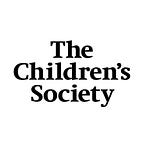It’s just not talked about…
Young people, especially girls, are facing a tsunami of sexual crime and injustice.
For the last 15 months, with the support of The Children’s Society, (through the ‘Support Rethought’ pilot programme funded by the Home Office delivering brief interventions to young people who have experienced sexual abuse), the Voice as Value team has worked with a handful of young people to help them use their experience to create change.
These young people chose us. We didn’t choose them. This is ‘authentic’ voice at its best; powerful, honest and often uncomfortable. There are five films to watch. Help these young people to make a difference by using them in your work.
This is what they have told us …
‘Young people, especially girls, are facing a tsunami of sexual crime and injustice — at school, at home, on the internet and in the criminal justice system — that is under-reported, hushed-up and under-prioritised … and they want change.
It’s undermining their well-being now and building issues into the future.
The facts are stark…
48% of child sexual abuse begins in the early years1 … and yet there is no mandatory sex education in primary schools to let children know when something is wrong.
Only one in every 100 rapes reported to the police results in a charge… with less than half then resulting in a conviction, while rape reports are at record levels.²
The median time to investigate and try serious sexual assault cases was 1,020 days in the first nine months3 of 2021, while survivors are denied effective therapy.
There’s been a 374% increase in ‘self-generated’ sexual images online since 2019, with 97% of online child sexual imagery involving girls.⁴
According to ‘Rose’ (18) — a survivor of familial sexual abuse, who wants primary school children to receive sex education — ‘it’s just not talked about. It’s not. And it needs to be.’
‘Lucy’ (19) who saw her rape case dropped against a neighbour through lack of evidence when she was 16, says she wants the legal system to work harder.
‘Sally’ (17) who was duped into posting intimate images of herself by an older man when she was 12 warns other young people that it’s ‘normalised’ … but not safe.
‘Sarah’ (14) was 12 when she invited older friends around for a birthday party, which quickly got out of hand. She’s urging young teens not to be embarrassed to act their age.
‘Clare’ (15) waited 19 months and was told not to talk during the police investigation into a serious sexual assault. She wants fewer delays and access to therapy for survivors.
These young people are speaking out because they want things to change. They have all been profoundly affected by the events that over-took them, and each is struggling with their well-being and mental health … with resulting demands on society.
They are authentic voices from inside a phenomenon that is still only scratching the surface of public consciousness; the prevalence of sexual crime against young people — especially girls — and the unfairness, imbalance and ineffectiveness of any public action.
More than half (55%) of female sexual assault victims are under 20 years old… while females make up 84% of sexual assault cases.⁵
Meeta Chaudhary, Head of National Programmes at The Children’s Society says:
‘It has taken an awful lot of courage for the young people involved in our Voice as Value project to share what has happened to them and it has been vitally important that they have been able to do this without judgement. I think we must listen to their honest voices, and their direct experience of the systems that should give them help and support … but which too often are lacking and may even be making things worse. Maybe by listening we can start to tackle the barriers of society wide failings that put these young people at risk.’
Visit our microsite: Survivors of childhood sex crimes call for change.
1. Office for National Statistics: Crime Survey for England and Wales (March 2019)
2. Rape Crisis (2022)
3. Parliamentary reply to Emily Thornberry MP (27 January 2022)
4. Internet Watch Foundation Annual Report (2021)
5. Office for National Statistics: Crime Survey for England and Wales (March 2020)
Voice as Value is an approach developed by Margo Horsley and Nigel Swettenham between 2008 and 2018. It became known as the Fixers Movement and worked with some 25,000 young people over the period, UK-wide, with a huge media reach including monthly broadcasts on ITV regional news. Voice as Value is based on enabling a young person to use their experience so that someone else doesn’t have to go through what they went through. They tell their story and seek change by asking those who have decision-making power to listen and act on what they have heard. Read more here: Voice as Value
The Children’s Society is committed to transforming the hopes and happiness of young people who have experienced child sexual abuse. CSA can happen to any child, of any age, sex, race or socio-economic background. Children who are survivors of sexual abuse often experience trauma which can impact on their emotional, mental health and wellbeing into adulthood. It is essential that they are responded to sensitively.
